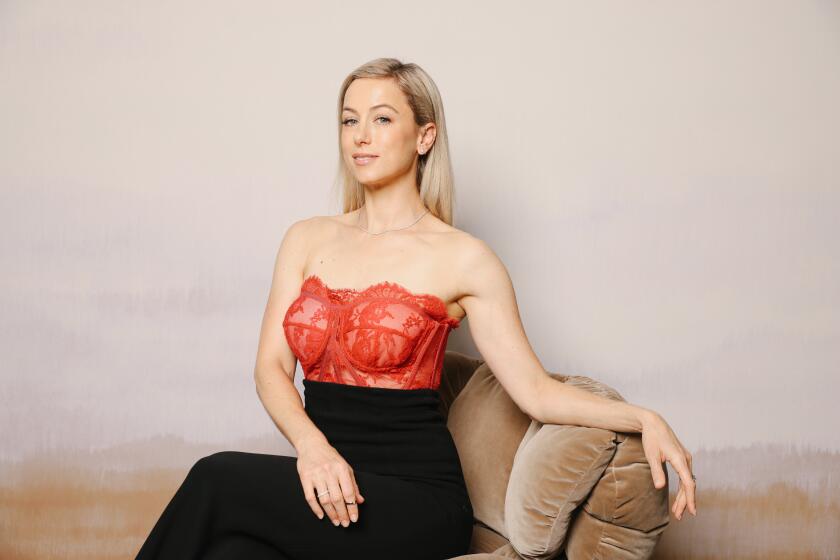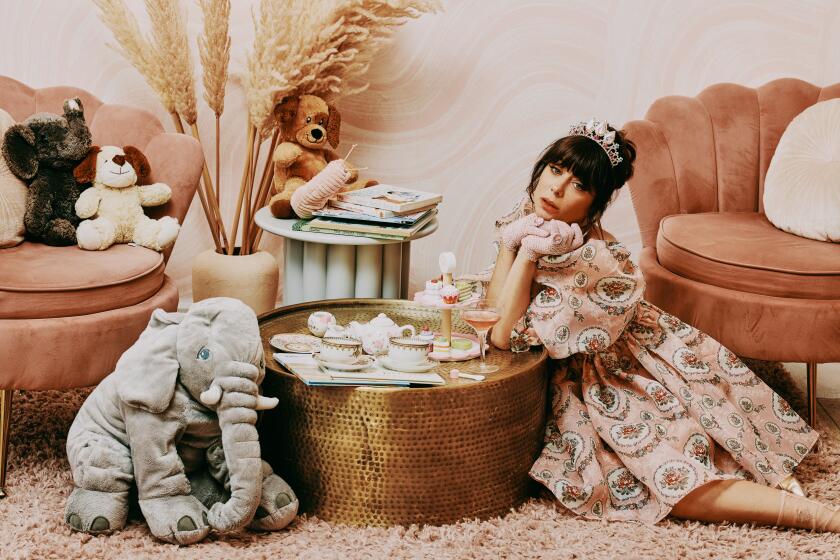Adult friendship is hard. But Lane Moore’s new book will help you find your people
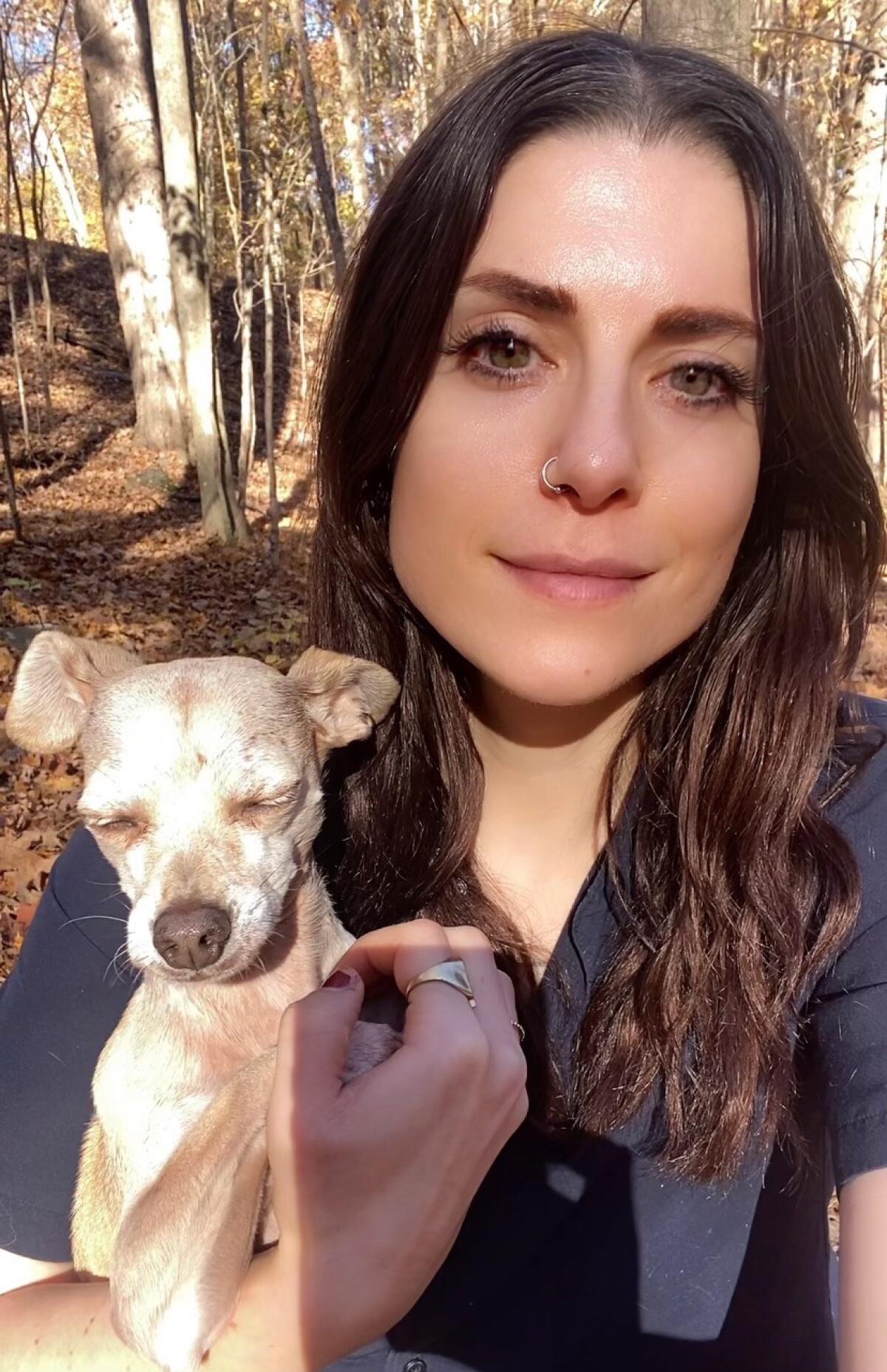
- Share via
Lane Moore is many things: a writer, comedian, actor and musician, to name a few. She is also a consummate truth-teller. In her first book, the hilarious yet utterly candid “How to Be Alone: If You Want to, and Even If You Don’t” (2018), Moore looked back at her history with abandonment, social isolation, familial abuse and estrangement. She wrote about spending years living with attachment issues and dreading every holiday season and Mother’s Day — because she literally could not go home. Now, in her equally forthright and funny follow-up, “You Will Find Your People: How to Make Meaningful Friendships as an Adult” , Moore takes her journey a step further by challenging the preconceived ideas we have around friendship.
“You Will Find Your People” is not so much an instruction manual about making friends as it is a nuanced discussion around how to find, heal and/or nurture genuinely fulfilling friendships. (On the flip side, Moore talks the reader through friendship breakups and ghosting.) Looking at every type of friendship — from the casual work acquaintance to roommates to longtime childhood companions — Moore unpacks creating healthy boundaries, asking for what you need in a friendship, animals as friends, what to do if you fall in love with a friend, how marriage and kids affect friendships and common attachment styles in friendships.
Moore recently sat down with The Times to discuss why she wanted to write a book about friendship and why so many TV shows such as “Friends” and “New Girl” — where adult friends hang out 24/7, never postpone coffee dates and resolve conflicts in 20 minutes or less — are ultimately about wish fulfillment.
When did you first begin conceptualizing a book about friendship?
When I wrote “How to Be Alone,” so much of it was about feeling like I didn’t have the family you’re supposed to have; I didn’t have the friends you’re supposed to have. I couldn’t figure these things out for some reason. [I was] trying to do what I think is so important — doing the work on yourself and really finding self-love. It was only through doing that work that I was able to heal the part of me that thought friendship was just whoever picked you, and you had to go along with it. It was also really powerful releasing “How to Be Alone,” because I thought, “I’m the only one who struggles with any of this.” [But] hearing from so many people — I still get hundreds of letters from people who are like, “I’ve never heard anybody talk about it this way.” I’m so grateful because it really provided this proof that I wasn’t [alone].
I think when you’ve had a lot of struggles in your life, you think, “Maybe I’ve been through too much, and I’ll never be able to connect with people. Maybe I’m not lovable.” And hearing this outpouring of strangers and even acquaintances, saying, “Thank you for writing this, this helps so much, I feel so close to you, I feel like I know you,” was part of shoring up this worthiness. It also attracted new people into my life who already had a bit of CliffsNotes on where I was coming from as a person and as a friend, for better or worse.
Once I did all that, I wanted to write a book about how to make friends. Because you think you can just go into your own hole of self-healing and do all the work on yourself, and you’ll immediately attract great friends and it’ll be easy, and you’ll never have a problem again. That’s not what I found to be the case. There’s so much work you still have to do within your friendships in terms of, “Oh that’s right, I struggle with boundaries; I’ve got to work on that. Oh, my people-pleasing is messing up my friendships. I’m still attracting people who aren’t very nice, or who take more than they give.” It can be so frustrating because you’re like, “I thought I figured this out.” And then you feel that shame of “Why can’t I just figure this out?”
So I wanted to write a book that not only told everybody what I had learned from doing [the work] myself, but also hopefully allows people to feel validated in their frustration, shame, confusion and excitement and all of the messy feelings that we love to simplify.
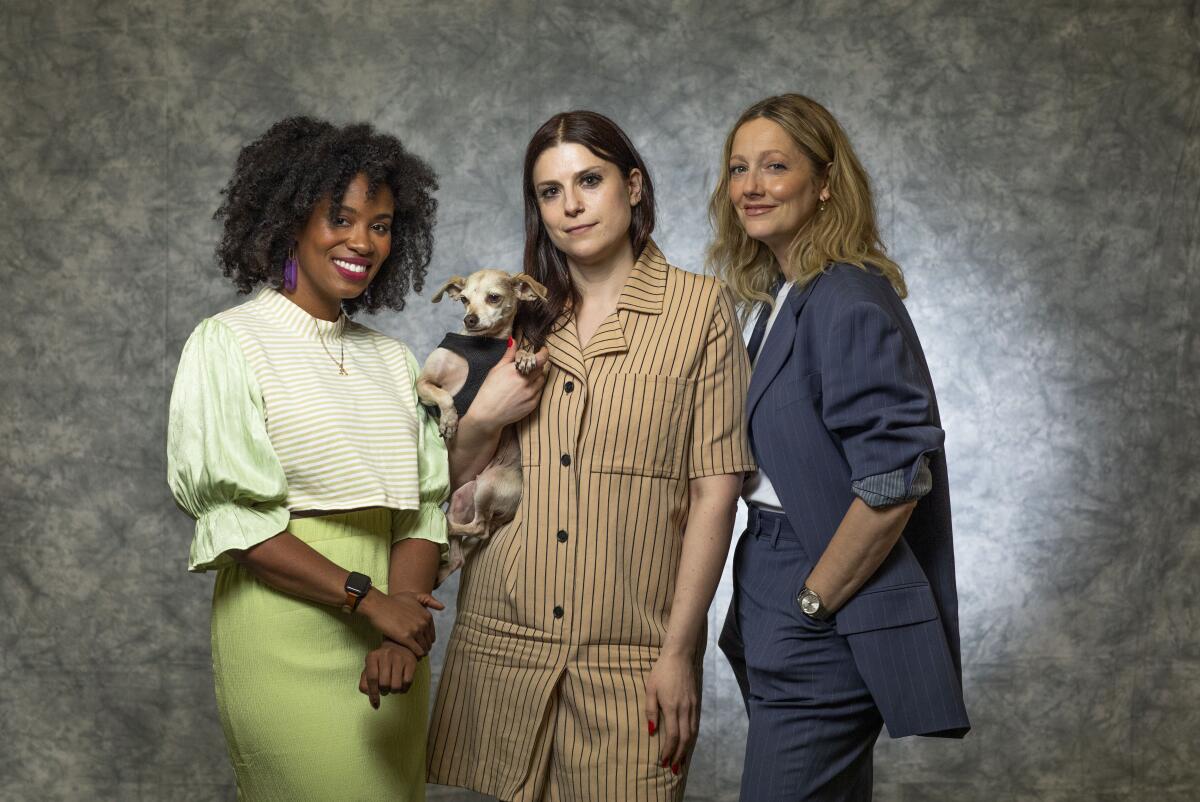
The book has been praised by major entertainment names such as Judy Greer, Rachel Bloom and Abbi Jacobson. Have you been surprised to find out that high-profile figures — people most would assume must already have perfect friendship circles — connect so thoroughly with a book about making and nurturing adult friendships?
It blew my mind to hear them say, “I loved this book so much. It taught me so much about friendship.” And to also hear them say, “I related so deeply, you articulated things I think about all the time.” Because in writing this book, I operated from a place of, “What if I am the only one who struggles with this?”
From my perspective, I would think that all of those people have their friendships on lock, they never have a bad day. You think people like that have [friendship] figured out, and you haven’t. Maybe we associate whether or not you will have great friends based on if you yourself seem really cool. All those women are so cool. Who could not like them? But that’s not what it’s about. It’s not about “I can’t find people who like me.”
We assume that’s what having trouble with friendships is — that nobody likes you. I don’t think that’s most people’s problem. The problem is you’re struggling with picking bad people. You think you picked a good person, and then they’re really mean to you. You think you’re compatible, then they’re incompatible. This can happen to even people whom I assume already solved that. If anything, I think it confirmed my belief of how necessary it was to write this book.
You write about friendship tropes in TV and film and comment on how wildly unrealistic they are. When did you first realize that the kind of physical proximity and emotional closeness you see on shows like “Friends,” “New Girl” and “Sex and the City” is not ultimately true to life?
Years ago, I was writing songs about relationships and thinking about how when I was a kid, I would hear songs on the radio about a really wonderful relationship. I had a realization while writing [my] songs: “Oh, I’m not necessarily writing about what I have personally experienced. Some of it is wish fulfillment.” So I wondered, how many of the songs I grew up listening to thinking love was going to be like that were actually just what [the artist] hoped it would be like? It was such a lightbulb moment for me.
I had a similar lightbulb moment, years after when I would watch TV and think, “How much of this is just wish fulfillment?” TV writers are writing these shows; they don’t see their friends every day. How could they when you’re writing a TV show for 12 hours a day? It’s physically impossible. Being on both sides, as a consumer and as somebody who’s now creating these things, I know that’s not the whole story. But at the same time, I almost wish they hadn’t done it. Because it looks so good. I can’t help but watch hangout shows like “Living Single,” “New Girl” and “The Golden Girls.” I know the Golden Girls were retired, but like, why can’t I see the same four people every single day? I want that. That’s what I grew up believing I would have. You know that it’s not realistic, but there’s still a real pain and grief around like, “Why can’t I have it?” That seems like it should be something everyone gets since we all want it.
No one’s going to put in a TV show or movie where everyone’s trying to schedule and no one can make it — that’s boring. But that’s such a huge part of my friendships: Telling somebody “I’ve been really overwhelmed, we’ll hang out in the next few months, I love you” and them being like, “Me too, see you soon.”
You do cite a few shows that accurately depict friends growing apart — Molly and Issa on “Insecure,” for example. Why do you think it’s so rare to get the realities of friendship right onscreen?
It’s really rare. I know for a fact that there are so many people who are resistant to watching it. They don’t want it partly because it’s so painful to go through. You don’t want to see it because you almost relate to it too much. Years ago, I created a web series, and I wanted to create a female friendship that was a little bit toxic. I remember doing a press interview and they were like, “I don’t like how their friendship is kind of strained. I like watching shows like ‘Broad City’ where they’re best friends.” I remember thinking, “The time is not right for this yet.” I don’t understand why you can’t show both. “‘Broad City” is an incredible show, of course. We naturally are geared to want to watch people getting along and being really close and standing up for each other. I love watching that.
When I was writing [the web series], I didn’t see anybody writing anything about a tense, uneven, opportunistic, selfish friendship where the other person couldn’t stand up for themselves. So I think I can speak to that. And I wonder if there have been other people who have wanted to write about it, but people were like, “No one wants to see that. That has no place here.” But it does have a place here. Because, again, I think we need to show all these different variations of friendship. Otherwise, that’s contributing to the disappointment and shame that we feel when we see all these friendships going swimmingly [in film and on TV], and the only conflict is something that can be resolved in 20 minutes.
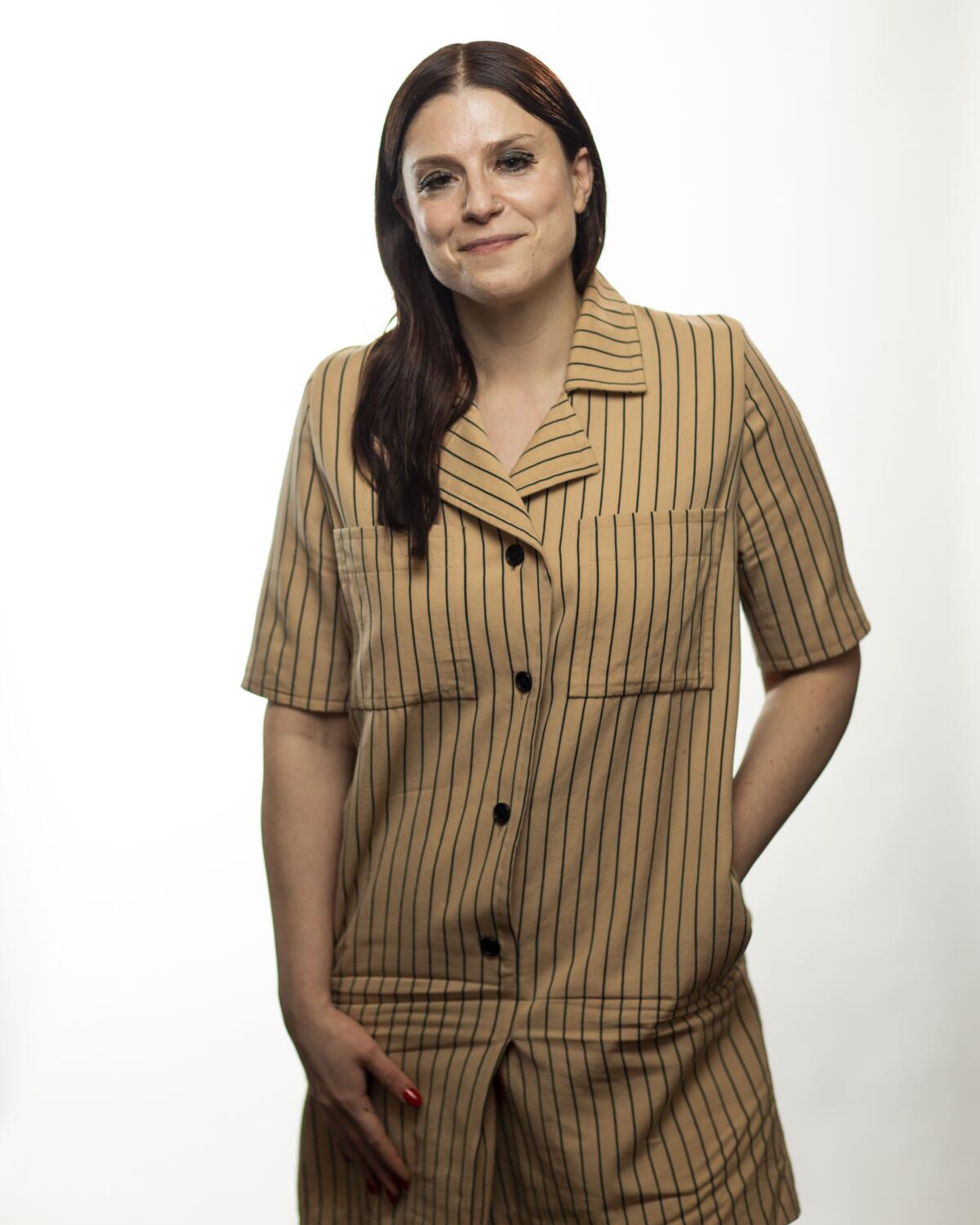
You are the first person I’ve ever seen use attachment theory as a lens for looking at the types of friendships we attract. Why did it feel appropriate to use attachment theory in this way, when it’s typically used as a framework for understanding romantic relationships?
I had learned so much about attachment styles in trying to figure out my own relationships. I had researched and written about them in “How to Be Alone” as they relate to romantic relationships, because that is the lens that we were told to see them through. Then, when the pandemic hit, I started doing all these TikToks about attachment theory. So it just became something I was so interested in.
When I was writing this book, I realized I had also never heard anybody talk about it as it related to friendship. And I started to realize, just as much as I tend to attract avoidant romantic partners, I had a moment where I realized I think all of my friends are avoidant, and this is why this is creating a constant dynamic that is so challenging. It created such a shift for me. I think a lot of people, myself included, are bumping up against incompatible attachment styles in their friendships. I really wanted to write about how much that had been true for me and how that comes up specifically in friendships. It’s completely different to spot than it is in romantic relationships. I really wanted to share that with people because it took me a lifetime to learn.
Friendship itself seems more in the zeitgeist lately — how to identify a toxic friendship, how to break up with a friend, how to foster healthy friendships, how to make friends as adults. Why do you think friendship is a topic of conversation in 2023?
The thing that seems most obvious to point to would be the pandemic. A lot of friendships were lost, and people were isolated. When they came back out to whatever degree, a lot of stuff came to light. I noticed that with “How to Be Alone” too, where people were confronting how it felt to be alone for the first time and the stuff that it brought up for them. I think you only face those feelings when you’re in a situation where you can’t run from them.
I think a lot of people, even before the pandemic, had felt that frustration. But I also think people are realizing how much we need each other and how much we need community. We can’t get through this world and the way things are set up right now alone — we just can’t. I’ve always wanted to talk about the thing that we’re not supposed to talk about. And I think a lot of people are getting to that point where they’re like, “Why are we not talking about this?” I’m very, very happy to be a part of that.
More to Read
The biggest entertainment stories
Get our big stories about Hollywood, film, television, music, arts, culture and more right in your inbox as soon as they publish.
You may occasionally receive promotional content from the Los Angeles Times.
